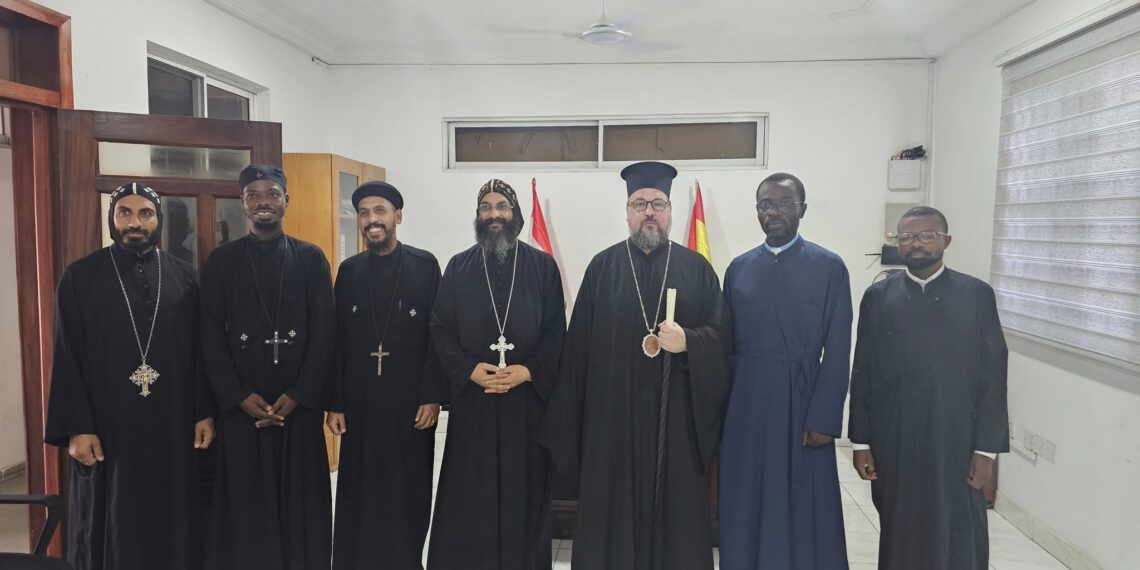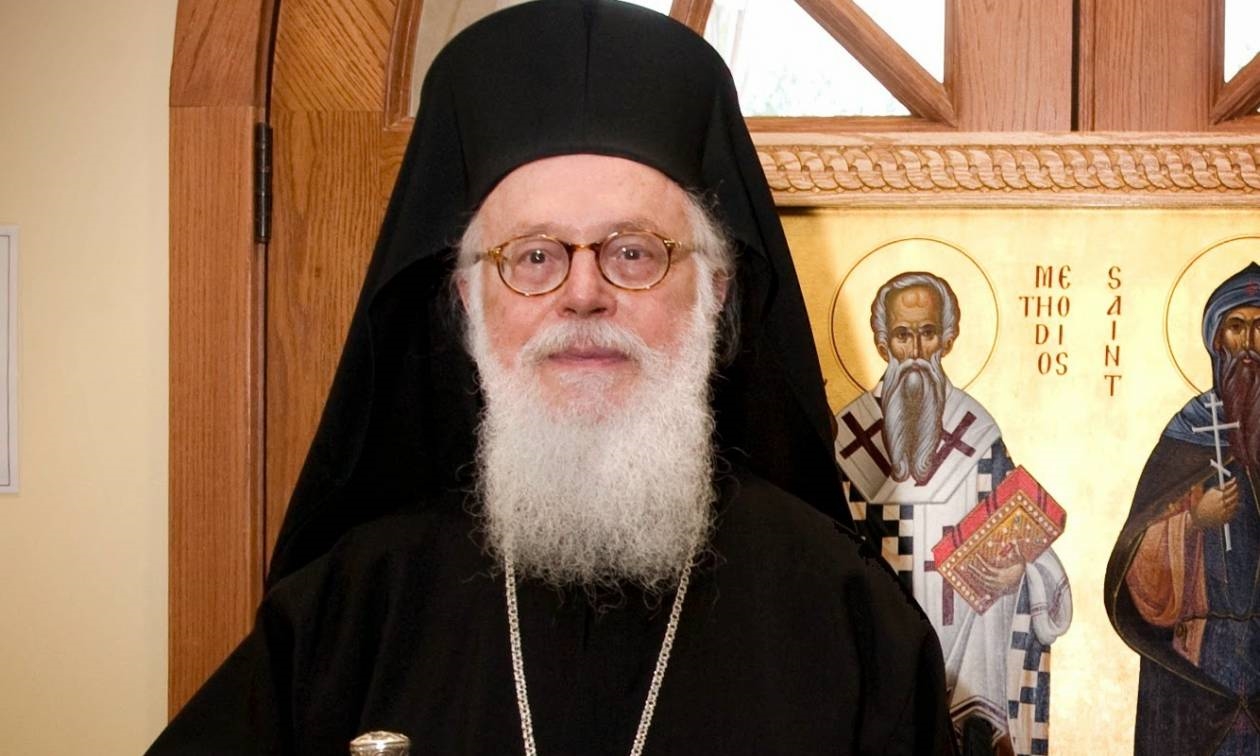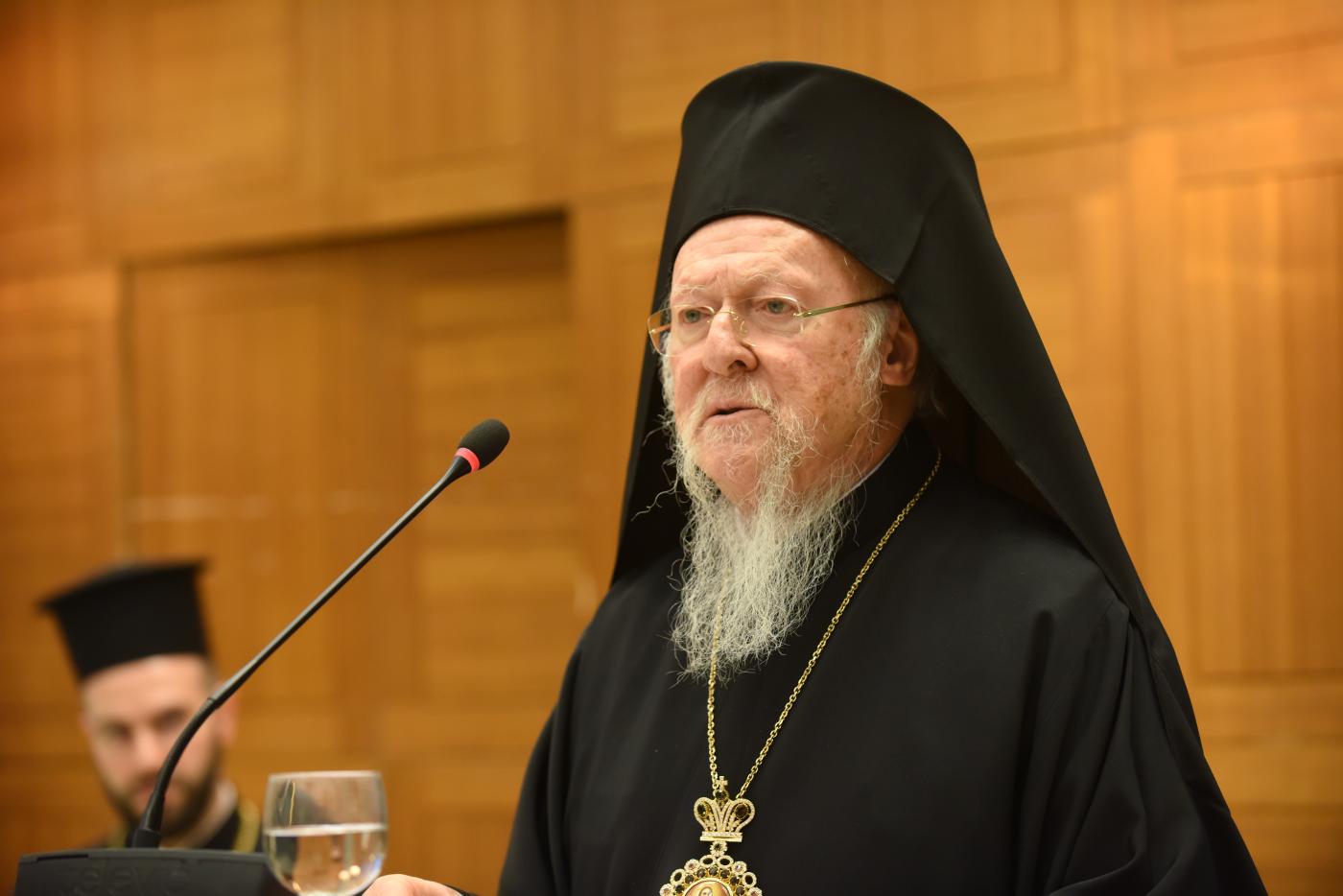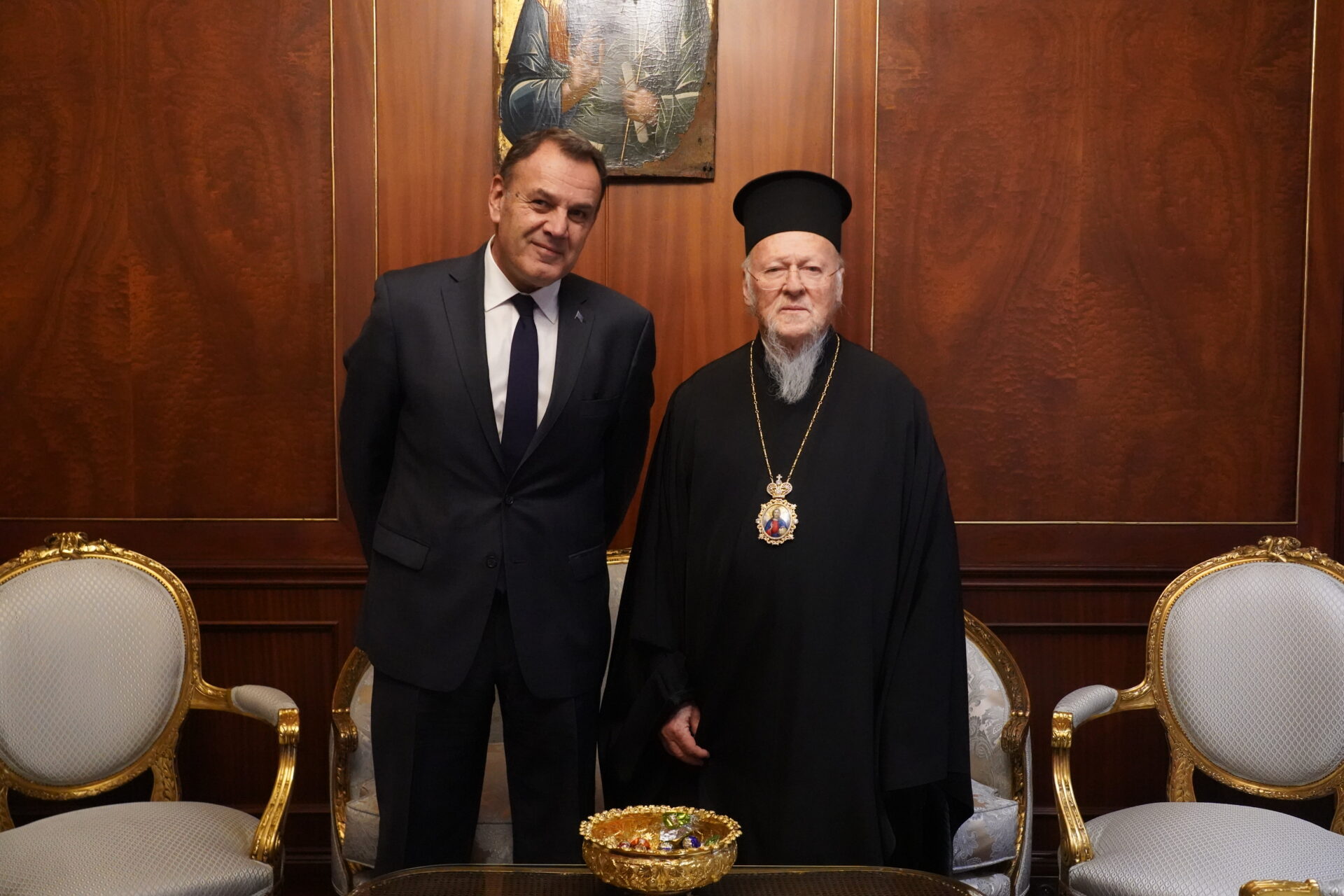Martyr and Archdeacon Laurence, and those with him, of Rome (10 August)
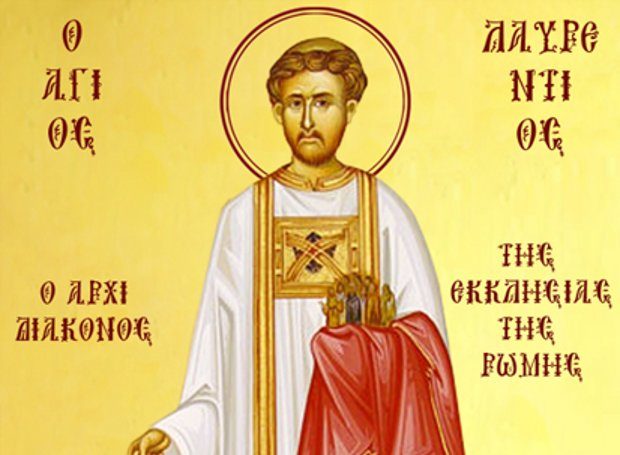

The Martyrs Archdeacon Laurence, Pope Sixtus, Deacons Felicissimus and Agapitus, and the soldier Romanus were citizens of Rome, and suffered in the year 258 during the reign of Emperor Valerian (253-260). Saint Sixtus was born in the city of Athens, and at first he was a philosopher, but later he became a follower of Christ. When he arrived in Rome, he showed himself to be a wise and devout member of the Church. Over a period of time, he passed through the various ranks of the clergy, and became the Bishop of Rome following the martyric death of Saint Stephen (August 2). Several Roman Hierarchs preferred to die rather than offer sacrifice to idols. Soon, Saint Sixtus was also arrested and imprisoned together with his deacons Felicissimus and Agapitus.
When Archdeacon Laurence visited Saint Sixtus in prison, he cried out with tears, “Where are you going, Father, without your son? Where do you hasten without your Archdeacon? Never have you offered the Bloodless Sacrifice without me. Take me with you, so that I may join you in shedding our blood for Christ!”
Saint Sixtus teplied, “I am not forsaking you, my son. I am old and I accept the lesser battle, but greater suffering awaits you. You must achieve the greater victory and triumph over your tormentors. Three days after my death, you shall follow after me.”
Then he entrusted Archdeacon Laurence with the Church’s treasures and sacred vessels, telling him to distribute these to the poor. He gathered them up and went around the city on foot, to the clergy and impoverished Christians who were in hiding, helping them according to their needs.
When he heard that Saint Sixtus had been brought to trial with his deacons, Saint Laurence went there in order to witness the outcome. Seeing that the martyrs were obstinate in their refusal to offer sacrifice to the idols, Valerian ordered them to be taken to the temple of Mars outside the city walls, and put to death if they did not offer incense to the idols. When he saw the pagan temple, Saint Sixtus prayed for it to be destroyed. There was an earthquake which caused part of the temple to collapse, and the statue of Mars was shattered to pieces. Saint Laurence cried out, “Father, I have fulfilled your command, and have distributed the treasures of the Church which you entrusted to me.”
After hearing about treasure, the soldiers placed him under guard. Saint Sixtus and the other martyrs were beheaded in front of the temple on August 6, 258. Afterward, the soldiers brought Saint Laurence to the Emperor, informing him that they had heard the Archdeacon mention something about the Church’s hidden treasures. The Emperor ordered him to reveal where the treasures were, and the Archdeacon asked for three days in order to collect them. Then Saint Laurence gathered all the poor and the needy, and brought them to the Prefect, saying, “Behold the treasures of the Church.”
The ruler became very angry at this and ordered Hippolytos (Iππόλυτος) who was in charge of the prison, to throw the Archdeacon into the dungeon with other prisoners. There the Saint restored the sight of a man named Lucillus. Hippolytos was amazed at this, and asked to see the Church’s treasures. Saint Laurence told him that if he believed in Christ and was baptized, he would find true wealth and everlasting life. Hippolytos said that if this was true, he would do as he asked.
Hippolytos took Saint Laurence to his home, where he instructed and baptized the jailer and all his household, consisting of nineteen persons. Soon afterward, Hippolytos was ordered to bring the Archdeacon to Emperor Valerian. Seeing that the Saint had not agreed to offer sacrifice, he ordered that Saint Laurence be tortured. Still, the Archdeacon refused to sacrifice to the idols. As the Martyr endured these torments, a soldier named Romanus cried, “Laurence, I see a radiant youth standing by you, and wiping your wounds. Entreat Christ, Who has sent His Angel to you, not to abandon me.”
Then Valerian commanded Hippolytos to return the Saint to prison. Romanus brought a pitcher of water and asked the Martyr to baptize him. Immediately after the soldier was baptized, he was seized by other soldiers and taken to the Emperor. Before anyone could question him, Romanus shouted, “I am a Christian.”
The Emperor ordered him to be taken outside the city and beheaded on August 9.
The next day, Saint Laurence was placed on a rack, scourged with whips with sharp iron points attached to them, and then was stretched out naked on a red-hot iron gridiron with burning coals underneath it. The Holy Martyr glanced at the ruler and said, “You have already roasted one side of my body, now turn me over turn over the other side so you may taste what you have roasted.”
Then he glorified God, saying, “I thank You, Lord Jesus Christ, that You have found me worthy to enter Your gates.”
Saint Laurence received the unfading crown of martyrdom on August 10, 258.
That night, Saint Hippolytos took the Saint’s body he wrapped it in a shroud with spices. Then he and the priest Justin brought the relics to the home of a widow named Kyriake, where it remained until evening. Later, many Christians escorted the Saint’s body to a cave on the widow’s property. After praying all night, they buried the Martyr there with honor. Then Father Justin served the Divine Liturgy, and everyone partook of the Holy Mysteries.
Saint Hippolytos and the other Christians suffered martyrdom three days after the death of Saint Laurence, on August 13.
A large part of Saint Laurence’s relics are located in the church of Saint Laurence “outside the walls” in Rome. Other pieces of the holy relics are to be found in the Monasteries of Saint Panteleimon on Mount Athos, and at Kykkos, Cyprus.
This Saint, who was born in Spain, was the Archdeacon of the Church of Rome, caring for the sacred vessels of the Church and distributing money to the needy. About the year 257, a harsh persecution was raised up against the Christians by Valerian. Pope Sixtus, who was from Athens, was commanded to worship the idols, and refused; before his martyrdom by beheading, he committed to Laurence all the sacred vessels of the Church. When Laurence was arrested and brought before the Prefect, he was questioned concerning the treasures of the Church; he asked for three days’ time to prepare them. He then proceeded to gather all the poor and needy, and presented them to the Prefect and said, “Behold the treasures of the Church.”
The Prefect became enraged at this and gave command that Laurence be racked, then scourged with scorpions (a whip furnished with sharp iron points – compare II Chron. 10:11), then stretched out on a red-hot iron grill. But the courageous athlete of Christ endured without groaning. After he had been burned on one side, he said, “My body is done on one side; turn me over on the other.” And when this had taken place, the Martyr said to the tyrants, “My flesh is now well done, you may taste of it.” And when he had said this, and had prayed for his slayers in imitation of Christ, he gave up his spirit on August 10, 258.
When Pope Stephen was slain (August 2), St. Sixtus, who was an Athenian by birth, was appointed in his place. Sixtus was at one time a philosopher and then became a Christian. This was a time in which the bishops of Rome were slain one after the other: to become Bishop of Rome meant to be consigned to martyrdom. Emperor Decius was determined to destroy Christianity. Pope Sixtus was quickly brought to trial, with two of his deacons–Felicissmus and Agapitus. As the three were led to prison, Archdeacon Lawrence said to the pope: “Where are you going, Father, without your son? Where, O bishop, without your archdeacon?” The pope consoled him, prophesying to Lawrence that he would undergo even greater tortures for Christ, and that he [Lawrence] would shortly take this path. And indeed, as soon as they had beheaded Sixtus and his two deacons, Lawrence was apprehended. Lawrence had presciently placed all of his affairs, and the affairs of the Church, in order.
As treasurer and steward [oikonomos] of the church, he removed all of the church’s valuables to the home of the widower Cyriacus. (On that same occasion, he healed Cyriacus of a terrible head pain by the touch of his hand and restored the sight of a blind man, Crescention.) After being thrown into prison, Lawrence healed Lucillus, a prisoner of many years, of blindness; and then he baptized him. Witnessing this, Hippolytus, their jailer, was also baptized. He later suffered for Christ (August 13). Since Lawrence did not want to deny Christ–but on the contrary, advised Emperor Decius to reject his false gods–his face was beaten with stones, and his body was beaten with a scorpion (a chain with sharp teeth, and a curved handle like a scorpion’s tail). Romanus, a soldier present at the torture, converted to the Christian Faith, and was immediately beheaded. In the end, they placed Lawrence on a gridiron, naked, and lit a fire under him. Roasting in the fire, St. Lawrence thanked God and mocked the emperor for his paganism. After Lawrence gave his pure and heroic soul to God, Hippolytus removed his body under cover of night to the home of Cyriacus, and then to a cave, where Hippolytus honorably buried him. St. Lawrence, with the others, suffered in the year 258 A.D.
Apolytikion of Martyr Archdeacon Laurence
Fourth Tone
Thy Martyr, O Lord, in his courageous contest for Thee received as the prize the crowns of incorruption and life from Thee, our immortal God. For since he possessed Thy strength, he cast down the tyrants and wholly destroyed the demons’ strengthless presumption. O Christ God, by his prayers, save our souls, since Thou art merciful.
Kontakion of Martyr Archdeacon Laurence
Second Tone
Aflame in thy heart, O Laurence, with the fire divine, thou burntest away the fire of passions utterly, O firm staff of athletes, O thou God-bearing Martyr; and thou in truth while contesting didst cry with faith: Nothing shall separate me from the love of Christ.
Source: oca.org / goarch.org / westserbdio.org

